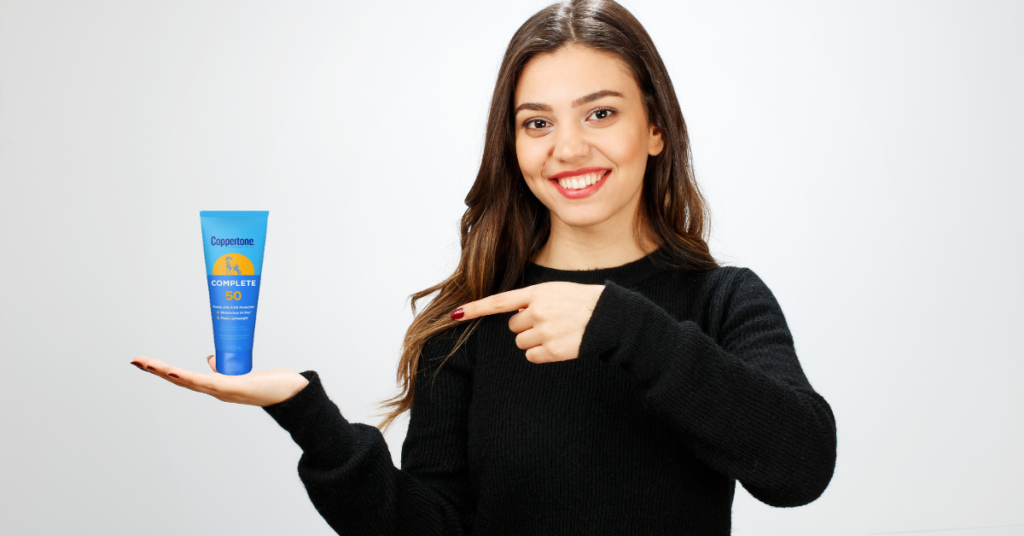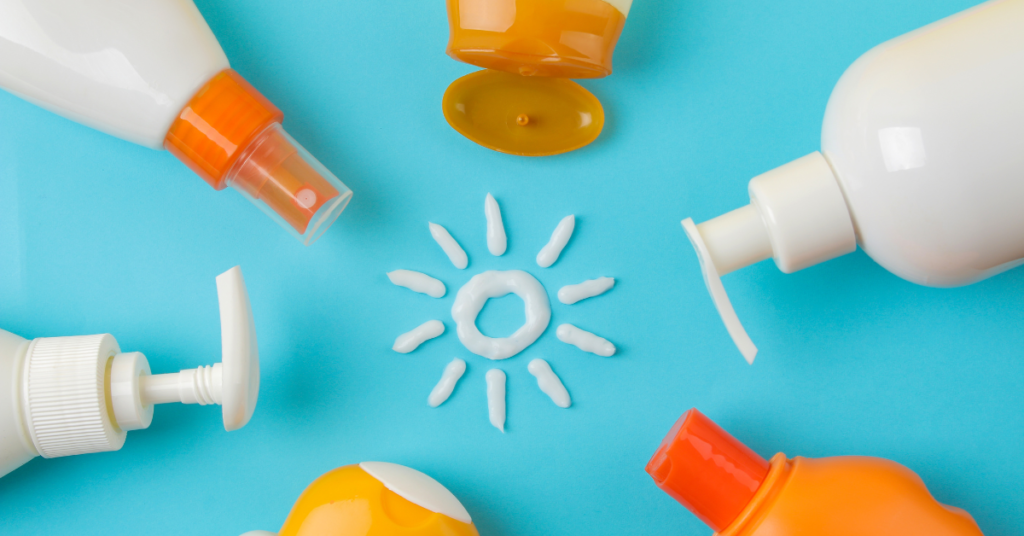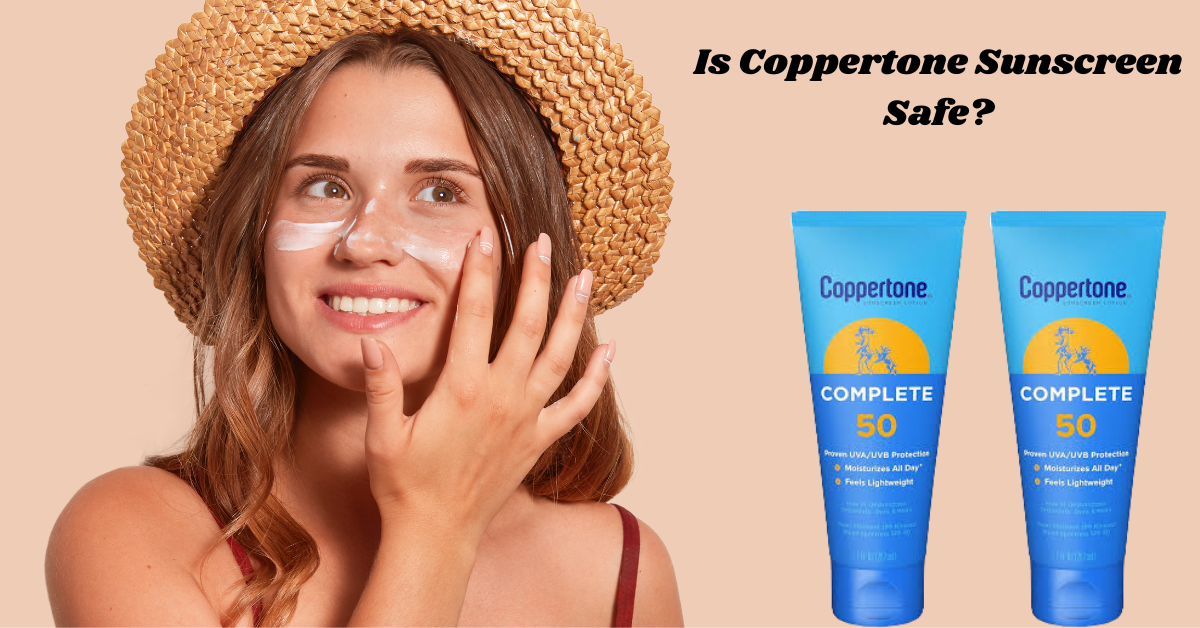Sunscreen is crucial for shielding our skin from the sun’s damaging rays, and Coppertone is a well-known brand with a range of lotions suitable for various skin types. Must ensure we’re using safe and functional goods while we spend time outside. Is Coppertone sunscreen safe for kids and those with sensitive skin, though? To make sure you know how to enjoy the sun properly, we will go over Coppertone’s functions, safety profile, main constituents, and usage advice in this post.
Table of Contents
What Does Sunscreen Do?
Your skin is shielded from damaging ultraviolet (UV) radiation by sunscreen. UVA and UVB radiation are the two forms of UV radiation. If you are aware of these rays, you will be able to understand why it is so important to use sunscreen every day.
The Importance of UVA and UVB Protection
- UVA Rays: UVA rays can cause long-term harm to the skin, resulting in wrinkles, skin cancer, and premature aging. They can also penetrate deeply into the skin. It doesn’t matter whether it’s cloudy outside; they can still be with you.
- UVB Rays: These rays are the main source of sunburn and are strongest between 10 a.m. and 4 p.m. Although our bodies need UVB rays to produce vitamin D, excessive exposure to these rays can cause major skin problems, such as skin cancer.
Correct application of sunscreen lowers the risk of skin injury by either reflecting or absorbing harmful radiation. Sunscreen minimizes damaging effects on your skin while enabling you to enjoy outdoor activities by creating a protective barrier.
Understanding SPF
The Sun Protection Factor (SPF) is a significant measure of sunscreen efficacy. The SPF rating shows how well a product shields your skin from UVB radiation. For example, SPF 30 filters out roughly 97% of UVB rays, and SPF 50 filters about 98%. More protection can be obtained with a higher SPF, particularly for people who want to spend a lot of time in the sun.
But it’s important to remember that no sunscreen can provide complete protection. Thus, it’s essential to use sunscreen in conjunction with other sun safety precautions.
Is Coppertone Sunscreen Safe for Skin?

Nowadays the most searchable query is “Is Coppertone Sunscreen Safe?” The answer is Yes, Coppertone sunscreen is generally safe for most people when used properly, but it’s important to check for individual sensitivities to specific ingredients. Coppertone is a dependable option for sun protection since it offers broad-spectrum defense against UVA and UVB radiation.
The FDA has authorized the brand’s products, indicating that they adhere to strict safety and efficacy guidelines. As with any product, though, some people may have allergic reactions to particular substances, so it’s advisable to conduct a patch test beforehand, particularly if your skin is sensitive.
FDA Clearance and Safety Evaluation
The Food and Drug Administration (FDA) of the United States is crucial in guaranteeing the safety of sunscreen products for customers. The numerous products offered by Coppertone have undergone extensive testing to ensure that they are safe to use and provide adequate UV protection. You can also add it to your daily skincare routine. Although FDA approval is a reliable safety indicator, it’s equally critical to recognize each person’s unique skin sensitivity.
After using Coppertone sunscreen, if you experience redness, itching, or irritation, you should think about stopping and getting advice from a specialist.
Key Ingredients in Coppertone Sunscreen

Selecting the ideal sunscreen for your skin type might be made easier if you are aware of its constituents. Coppertone sunscreens frequently include both physical (mineral) and chemical components.
Chemical Components
Typical chemical components found in products containing Coppertone are:
- Oxybenzone: A popular UV filter that works by absorbing UV radiation. Despite its effectiveness, oxybenzone may have hormonal effects and be absorbed into the bloodstream, according to certain studies.
- Octinoxate: Another UV filter that aids in UV radiation absorption. To improve sun protection, it is frequently mixed with additional substances.
- Avobenzone: UVA ray-blocking, broad-spectrum sunscreen ingredient. It is regarded as one of the best chemical filters on the market.
While these ingredients are beneficial against UV rays, some people prefer to avoid them due to concerns about absorption and potential health risks.
Mineral Components
Coppertone also provides alternatives based on minerals for people with sensitive skin. Usually, these include components like titanium dioxide and zinc oxide.
- Zinc Oxide: This component blocks UV radiation by remaining on the skin’s surface. It is frequently advised for young children and those with sensitive skin.
- Titanium Dioxide: Similar to zinc oxide, titanium dioxide serving a physical shield from ultraviolet radiation. It is safe for most skin types and generally well-tolerated.
Because mineral sunscreens usually include fewer irritating ingredients, they are frequently safer for delicate skin. If you are concerned about chemical additives or have sensitive skin, seek Coppertone products having these mineral choices.
Are Children Safe with Coppertone?

Because of their sensitive skin, children should always use sunscreen made especially for them. Coppertone provides a range of kid-friendly products with kinder ingredients to reduce irritability.
Features of Coppertone Kids Sunscreen
- Gentle Formulas: Coppertone’s kids’ sunscreens are designed to be free from harsh chemicals and fragrances, making them safer for sensitive skin.
- Water-Resistant: These sunscreens are formulated to be water-resistant, which means they will remain effective even during swimming or sweating. This feature is important for active children who spend most of their time outdoors.
- Dermatologist-Tested: Many of these products are dermatologist-tested, ensuring they meet safety and effectiveness standards for young skin.
Putting Sunscreen on Kids
Children should always have all exposed skin covered when using sunscreen, including their ears, necks, and toes of the feet. Here are some pointers for properly applying sunscreen to children:
- Use Enough Product: Apply about one ounce (the size of a shot glass) for full-body coverage.
- Apply Generously: Apply sunscreen liberally, making sure to completely cover all exposed skin.
- Reapply Often: Reapply sunscreen every two hours, or more frequently if the child is swimming or sweating.
- Lead by Example: Encourage kids to wear sunscreen by applying it yourself. Make it a fun part of your routine before heading outside!
Advice for Using Sunscreen with Coppertone
To enhance the effectiveness of Coppertone sunscreen, follow these simple tips:
- Choose the Right SPF: Choose a sunscreen with at least SPF 30 for daily use. If you plan to spend a lot of time outside, use a higher SPF.
- Apply Before Going Outside: Before venturing outside, give the sunscreen 15 to 20 minutes to absorb and take effect.
- Reapply Regularly: To keep the protection, reapply every two hours or immediately after swimming or bathing.
- Remember Hard-to-Reach Places: Don’t forget to apply sunscreen to frequently neglected areas including the tops of the feet, ears, and back of the neck.
- Check Expiration Dates: Sunscreens have shelf lives, and utilizing ones that have passed their prime can make them less effective. Check the label before applying anything at all.
- Combine with Other Protection: Sunscreen is just one part of sun safety. Wear protective clothing, hats, and sunglasses, and seek shade whenever possible, especially during peak sun hours (10 AM to 4 PM).
Conclusion
In summary, Coppertone sunscreen is generally safe when used properly. With various products available, it offers broad-spectrum protection against harmful UV rays. While some ingredients may raise concerns, the FDA has approved these products as safe for use when applied according to directions.
You can enjoy outdoor activities while safeguarding your skin by using the proper formula and applying it according to the recommended guidelines. Recall that exercising wise sun behaviors, applying sunscreen, and dressing in protective gear all contribute to sun safety. You can delight the sun and keep your skin safe and healthy by taking the appropriate precautions.
Related Post: Does Sunscreen Make You Dark? Myths, Facts, & Tips Revealed!
FAQS
Is Coppertone a chemical sunscreen?
Yes, a lot of Coppertone sunscreens have chemical filters in them to block UV rays. They do, however, also provide mineral sunscreen products that block UV radiation via physical components.
What is the safest sunscreen to use?
Zinc oxide or titanium dioxide are two common mineral components found in the safest sunscreens. Without using harsh chemicals, these choices offer effective UV protection while being kind to the skin.
Does Coppertone clog pores?
Coppertone sunscreens have the potential to block pores, particularly those containing certain chemicals or thicker compositions. Selecting non-comedogenic products is recommended if you have sensitive or acne-prone skin.
Is Coppertone sunscreen being recalled?
Yes, the presence of the possibly dangerous ingredient benzene led to the recall of some Coppertone sunscreens. Certain goods are affected by the recall, therefore it’s critical to review the most recent updates for specifics.

